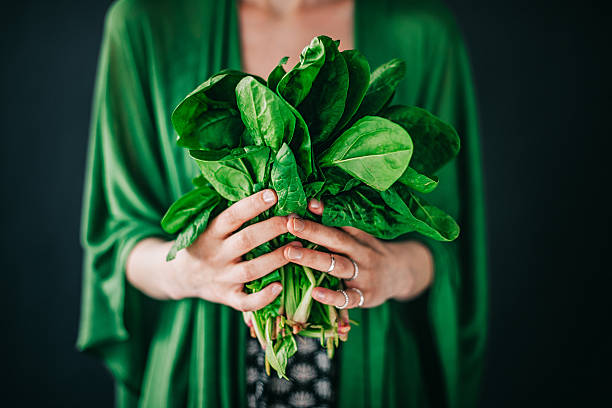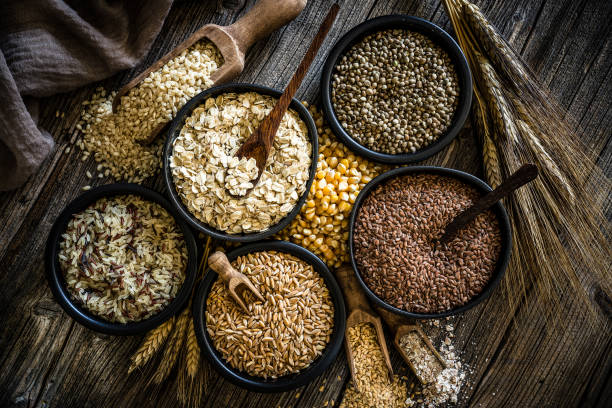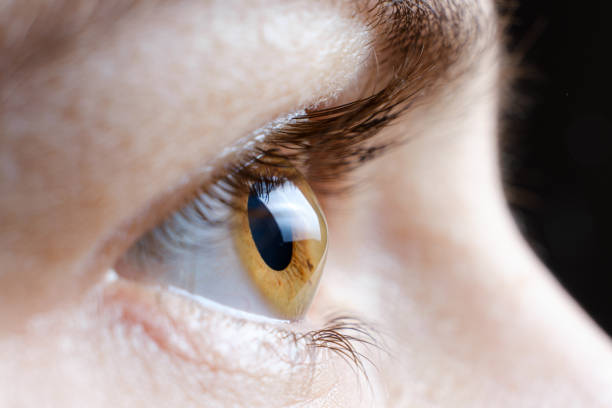Keeping your eyes healthy involves more than just regular checkups and wearing sunglasses. Your diet also plays a big role in keeping your vision sharp and your eyes strong. Eating the right foods can help protect against age-related damage, dryness, and even serious eye diseases. Nutrients like vitamin A, omega-3 fatty acids, and antioxidants support long-term eye health and may prevent vision loss over time.
In this guide, you’ll discover the best foods to eat for better vision, all backed by science. We’ll explain how these foods help your eyes and give you easy tips to include them in your daily meals and snacks. With a few small changes, you can support your eye health starting today.
Why Nutrition Matters for Eye Health
Your eyes need a mix of vitamins and nutrients to stay strong and work properly. If you don’t eat well over time, it can lead to vision problems such as:
- Dry eyes
- Blurry vision
- Cataracts
- Macular degeneration
- Night blindness
According to the American Optometric Association, antioxidants and key vitamins like A, C, and E can help lower your risk of these and other eye diseases. Eating nutrient-rich foods is one of the best ways to protect your vision for the future.
Let’s take a closer look at the key nutrients your eyes need to stay healthy and strong. We’ll also highlight the best foods that provide these nutrients, so you can make smart choices for better vision every day.

1. Leafy Greens: Loaded with Lutein and Zeaxanthin
How They Help:
Lutein and zeaxanthin are strong antioxidants that play a big role in eye health. They help filter harmful blue light, which can damage your eyes over time. These nutrients also protect the retina and may reduce your risk of macular degeneration and cataracts as you age.
Best Options:
- Spinach
- Kale
- Collard greens
- Swiss chard
Quick Tips:
- Blend spinach or kale into smoothies for a nutrient boost.
- Use darker leafy greens instead of lettuce in your salads.
- Mix greens into soups, stews, or omelets for added flavor and eye health benefits.
2. Carrots and Sweet Potatoes: High in Beta-Carotene
How They Help:
Beta-carotene is a nutrient that your body turns into vitamin A. This vitamin is important for good night vision and helps keep your eyes moist and protected. It also supports your immune system and may lower the risk of eye infections and dryness.
Best Options:
- Carrots
- Sweet potatoes
- Butternut squash
- Pumpkin
Quick Tips:
- Enjoy raw carrot sticks as a crunchy, healthy snack.
- Bake sweet potato fries for a tasty side dish.
- Mix pumpkin puree into oatmeal, muffins, or smoothies for extra nutrients.
3. Fatty Fish: Packed with Omega-3 Fatty Acids
How They Help:
Omega-3 fatty acids are essential for healthy eyes. They help keep your eyes moist and can reduce symptoms of dry eye syndrome. These healthy fats also support the retina and may lower your risk of macular degeneration, a leading cause of vision loss as you age.
Best Options:
- Salmon
- Mackerel
- Sardines
- Tuna
Quick Tips:
- Enjoy grilled salmon once or twice a week for a healthy dose of omega-3s.
- Make a tuna salad sandwich using whole-grain bread for a tasty meal.
- Add canned sardines to your salad or spread them on toast for a quick snack.
According to Harvard Health, omega-3 fatty acids are important nutrients that help protect your eyes and support long-term vision health.
4. Citrus Fruits and Berries: Rich in Vitamin C
How They Help:
Vitamin C is a powerful antioxidant that helps protect your eyes from damage. It may reduce the risk of developing cataracts and can slow down the progression of macular degeneration, helping to preserve your vision as you age.
Best Options:
- Oranges
- Grapefruits
- Strawberries
- Blueberries
Quick Tips:
- Start your day with a glass of fresh orange juice for a vitamin C boost.
- Add strawberries or blueberries to your yogurt or cereal for extra flavor and nutrients.
- Make a colorful fruit salad using a mix of berries for a healthy and refreshing snack.
5. Eggs: A Great Source of Multiple Eye Nutrients
How They Help:
Eggs are packed with important nutrients like lutein, zeaxanthin, zinc, and vitamin A. This powerful combination supports healthy vision and helps protect the retina from damage. Including eggs in your diet can be a simple way to boost your eye health.
Quick Tips:
- Start your day with scrambled eggs for a quick and nutritious breakfast.
- Boost your salad’s nutrition by adding sliced boiled eggs.
- Make a veggie omelet with spinach and tomatoes for a tasty, eye-healthy meal.
6. Nuts and Seeds: Full of Vitamin E and Healthy Fats
How They Help:
Vitamin E helps fight free radicals that can damage the delicate tissues in your eyes. Nuts and seeds are great sources of vitamin E, and they also provide omega-3 fatty acids and zinc. These nutrients work together to protect your eyes from age-related damage and support long-term vision health.
Best Options:
- Almonds
- Sunflower seeds
- Walnuts
- Chia seeds
Quick Tips:
- Pack a small bag of mixed nuts for an easy, on-the-go snack.
- Sprinkle sunflower seeds or chopped walnuts on salads or yogurt for a crunchy boost.
- Blend chia seeds into smoothies or mix them into oatmeal for added fiber and nutrients.

7. Whole Grains: Better Than Refined Carbs
How They Help:
Whole grains have a lower glycemic index (GI), which means they help keep your blood sugar steady. Stable blood sugar is important because high levels over time can harm the retina and increase the risk of vision loss. Choosing whole grains supports both your eye health and overall wellness.
Best Options:
- Brown rice
- Oats
- Quinoa
- Whole wheat bread
Quick Tips:
- Replace white bread with whole grain bread for more fiber and nutrients.
- Start your morning with a warm bowl of oatmeal to support steady blood sugar.
- Use quinoa instead of white rice for a protein-packed, eye-friendly side dish.
8. Bell Peppers and Broccoli: Vitamin C Powerhouses
How They Help:
Colorful veggies like red bell peppers and broccoli are rich in vitamin C and beta-carotene. These nutrients help protect your eyes from oxidative stress, which can damage cells over time. Eating a mix of bright vegetables supports healthy vision and keeps your eyes strong.
Quick Tips:
- Toss raw red peppers into your salad for extra crunch and color.
- Steam broccoli for a simple, nutrient-rich side dish.
- Sauté red peppers and broccoli in olive oil for a quick and healthy stir-fry.
9. Legumes: Rich in Zinc and Bioflavonoids
How They Help:
Zinc plays an important role in helping vitamin A get to your retina, where it supports clear vision. It also helps protect your eyes from macular degeneration and night blindness, especially as you age. Getting enough zinc is key for long-term eye health.
Best Options:
- Lentils
- Black beans
- Kidney beans
- Chickpeas
Quick Tips:
- Cook a hearty lentil soup or chili for a filling, eye-healthy meal.
- Add black beans or chickpeas to tacos, grain bowls, or salads.
- Dip raw veggies in hummus for a simple snack packed with nutrients.
10. Dark Chocolate: Yes, It Can Help!
How It Helps:
Dark chocolate is rich in flavonoids and antioxidants that may help increase blood flow to the retina. This boost in circulation could support sharper vision and better eye function. While more research is needed, enjoying dark chocolate in moderation may benefit your eyes.
Quick Tips:
- Pick dark chocolate with at least 70% cocoa for the most benefits.
- Savor a small square after lunch or dinner as a treat.
- Stick to small portions—too much can add extra sugar and calories.
Foods to Avoid for Eye Health
Some foods may harm your eyes if eaten too often. To protect your vision, try to limit:
- Sugary drinks and snacks – These can raise your blood sugar and cause inflammation, which may lead to eye damage over time.
- Fried foods and trans fats – Linked to poor blood flow and a higher risk of retinal problems.
- Processed meats – Packed with sodium, which may raise blood pressure and increase the risk of vision issues.
The National Eye Institute recommends eating a diet low in saturated fat and added sugar to protect your eyes over the long term. Reducing these can help lower the risk of eye diseases and keep your vision clear as you age.
Sample Day of Eye-Healthy Eating
Breakfast:
Oatmeal with blueberries and chia seeds
Snack:
Carrot sticks and hummus
Lunch:
Spinach and tuna salad with sunflower seeds
Snack:
Orange slices and a few almonds
Dinner:
Grilled salmon, quinoa, and steamed broccoli
Dessert (optional):
A square of dark chocolate

Supplements: Should You Take Them?
If you struggle to get enough eye nutrients from food, a supplement may help. Look for ones with:
- Vitamin A
- Lutein
- Zeaxanthin
- Omega-3s
- Zinc
- Vitamin C and E
The AREDS2 formula (from the Age-Related Eye Disease Study) is often recommended for those at risk of macular degeneration.
Always talk to your doctor before starting any supplement.
Final Tips for Better Vision
Eating for better eye health is simple when you make small changes. Try to:
- Eat a colorful variety of fruits and veggies.
- Include omega-3-rich fish twice a week.
- Choose whole grains over refined carbs.
- Snack on nuts and seeds instead of chips.
- Drink water to stay hydrated.
Conclusion: Eat Smart, See Bright
You only get one pair of eyes, so take care of them with the right foods. Adding just a few of these vision-boosting foods to your daily meals can make a big difference over time.
Have you tried any of these eye-healthy foods? What’s your favorite way to add them to your meals? Share your thoughts in the comments—we’d love to hear from you!
Ready to eat for better vision? Start today with one small change. Your eyes will thank you!

